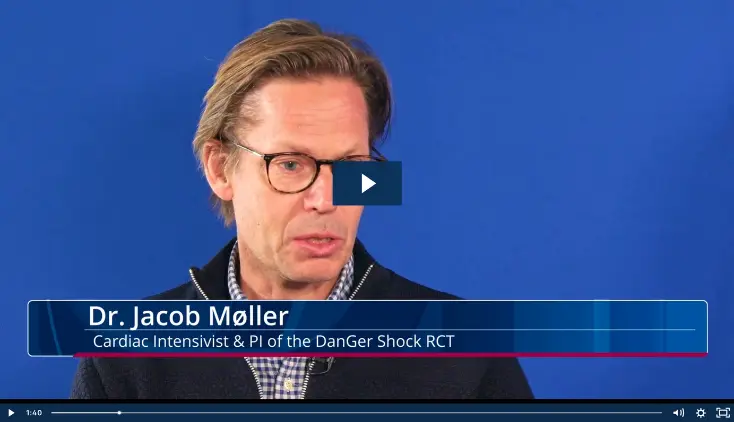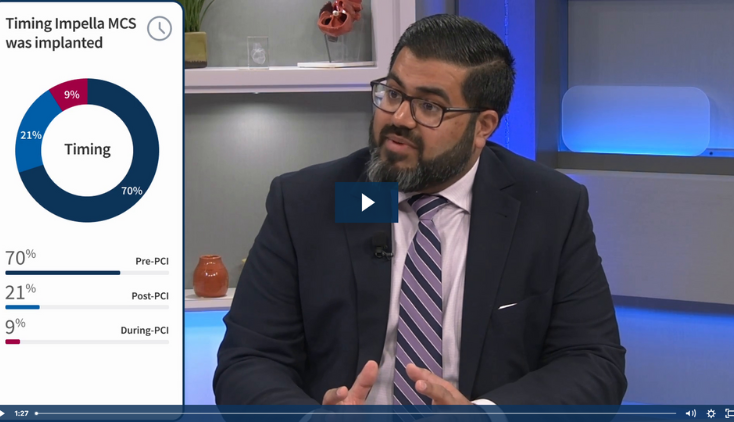Clinical Research & Data, Escalation Therapy, AMI Cardiogenic Shock, Right Heart Failure
Dr. Babar Basir, DO: CERAMICS Trial
Babar Basir, DO, discusses the CERAMICS trial with Bobbi Bogaev Chapman, MD. Dr. Basir and colleagues designed this trial--Can Escalation Reduce Acute Myocardial Infarction in Cardiogenic Shock (CERAMICS)—to build on learnings from the National Cardiogenic Shock Initiative (NCSI) study.
Dr. Basir describes NCSI as “a coalition of the willing,” with the goal of motivating sites to make a change in the outcomes of patients with acute myocardial infarction (AMI) cardiogenic shock. He explains, however, that many of the NCSI sites were community-based programs that did not have a dedicated cardiac intensive care unit, did not have advanced heart failure support and did not have the ability to escalate hemodynamic support if needed.
CERAMICS, Dr. Basir emphasizes, is “a next step to NCSI.” Instead of having 80 sites throughout the country like NCSI, CERAMICS focuses on 20 sites that have multidisciplinary care teams and the ability to escalate hemodynamic support with an Impella 5.5, extracorporeal membrane oxygenation (ECMO) and/or right ventricular hemodynamic support devices. The goal of CERAMICS is to further improve outcomes in patients with AMI cardiogenic shock and see if outcomes at these sites with multidisciplinary care teams and the ability to escalate patients are better than what was seen in NCSI.
“When you treat patients early with an Impella CP and revascularize them, the majority—over 70%—are going to do fine and they’re going to get better and they’re going to survive,” Dr. Basir explains. But patients with more advance cardiogenic shock or patients requiring more prolonged hemodynamic support may require escalation. These patients are likely to do better with an Impella 5.5 placed surgically, which gives patients the ability to ambulate and allows for a more extended recovery. “So I think when you have all of these tools and can make those decisions, then it becomes really a complete program. And so we want to see what the outcomes are in those patients.”
Dr. Basir acknowledges that while these centers with all the tools do have the ability to help patients requiring escalation, they may also end up getting sicker patients, which may impact outcomes.
Sign Up for Latest Updates
NPS-4432


